
Tokyo's big Olympics bet backfires badly
(MENAFN- Asia Times) TOKYO – If an Olympics falls in the forest and no one is around to hear it, does it make a sound?
This philosophical thought experiment is raising tantalizing economic questions as Tokyo tries its hand at a silent Summer Games.
Literally. The long-suffering – and delayed – extravaganza in which Japan invested so extravagantly is being dubbed the“no fun” Olympics. To stage one during a pandemic, Tokyo is issuing a bewildering barrage of safety protocols – from no cheering to no sex to no booze. The upshot is an event with more rules than spectators.
Yet the silence that might matter more is the economic impact for which Prime Minister Yoshihide Suga's party paid upwards of US$25 billion . In fact, it might even be a drag at a moment as Asia's No 2 economy is struggling to avoid a double-dip recession.
Since 2013, when the ruling Liberal Democratic Party scored the 2020 Olympics, it was billed as the ultimate deflation killer. Whereas so many of Japan's revivals since 1990 happened quietly in the economic woods, this one would announce Japan's return to growth-engine status. And loudly so.
Then Covid-19 arrived to upend the game plan.
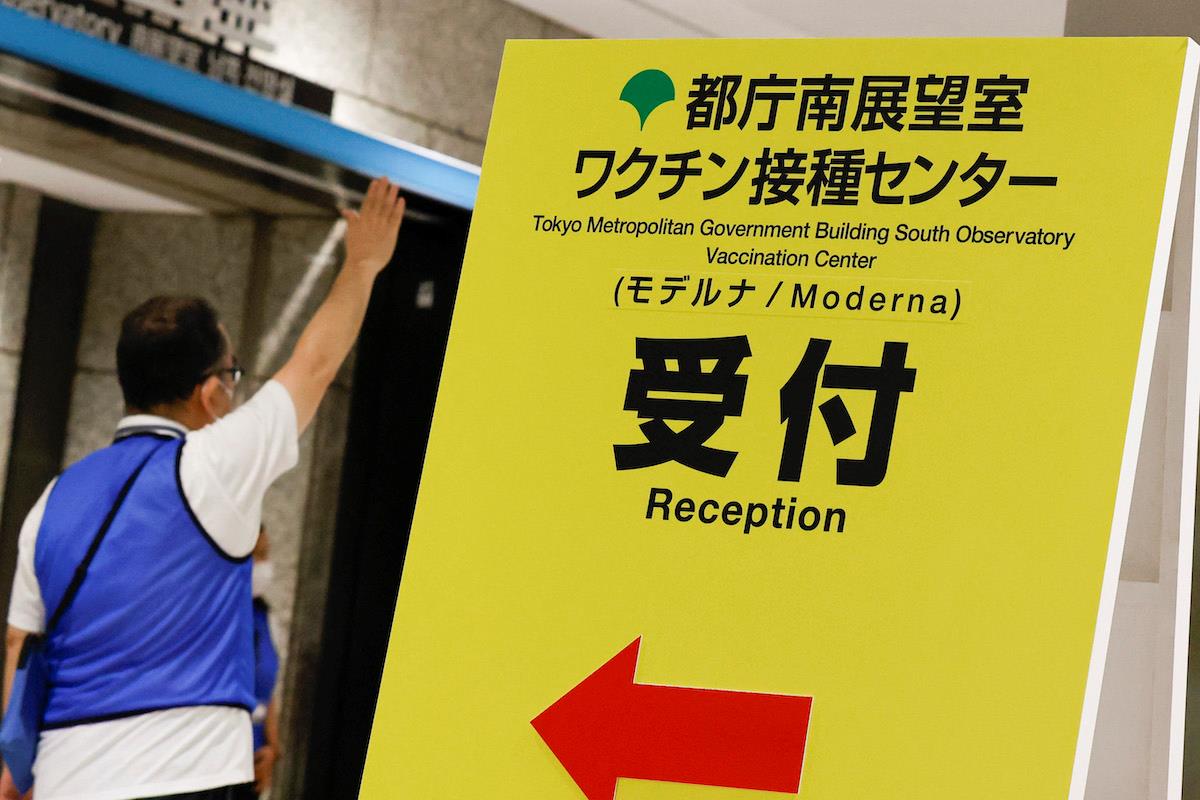
A signboard during a Moderna vaccination campaign at the Tokyo Metropolitan Government building on June 25, 2021. Photo: AFP / Rodrigo Reyes Marin The big non-bonanza
The pandemic cost Japan the 40 million visitors it had targeted for 2020, pushing its reasonable dreams of becoming a tourism mecca out the door. This, after all, had been the moment 20 years of growing the size of the tourism services sector had been expected to pay off.
Since the late 1990s, when US President Bill Clinton was in the White House, Tokyo was under pressure to produce“domestic demand-led growth .”
This phrase, which turned up in every Group of Seven meeting communique, was meant to prod Japan to reduce the role of exports in driving gross domestic product. That, in turn, would curb Tokyo's mercantilist tendencies and obsessive efforts to weaken the yen.
Quietly, Japan spent the last decade doing just that.
Increased tourism was a particular focus. Despite a bevy of temples, shrines, beaches, mountains and a reputation for safety, world-class infrastructure and one of the most celebrated food cultures, Japan punched far below its weight on the leisure-travel tables.
With a mix of tax incentives, public subsidies and simplified visa protocols, the ruling Liberal Democratic Party made great inroads. Waves of travelers from the West and the neighboring East – particularly China, South Korea and Southeast Asia – filled tourist sites, hotels, planes, trains and ships, filling local government coffers.
Tokyo 2020, though, was the center of Japan's“welcome mat” extravaganza. The 2019 Rugby World Cup was a preview of the tourism explosion to come. It went brilliantly.
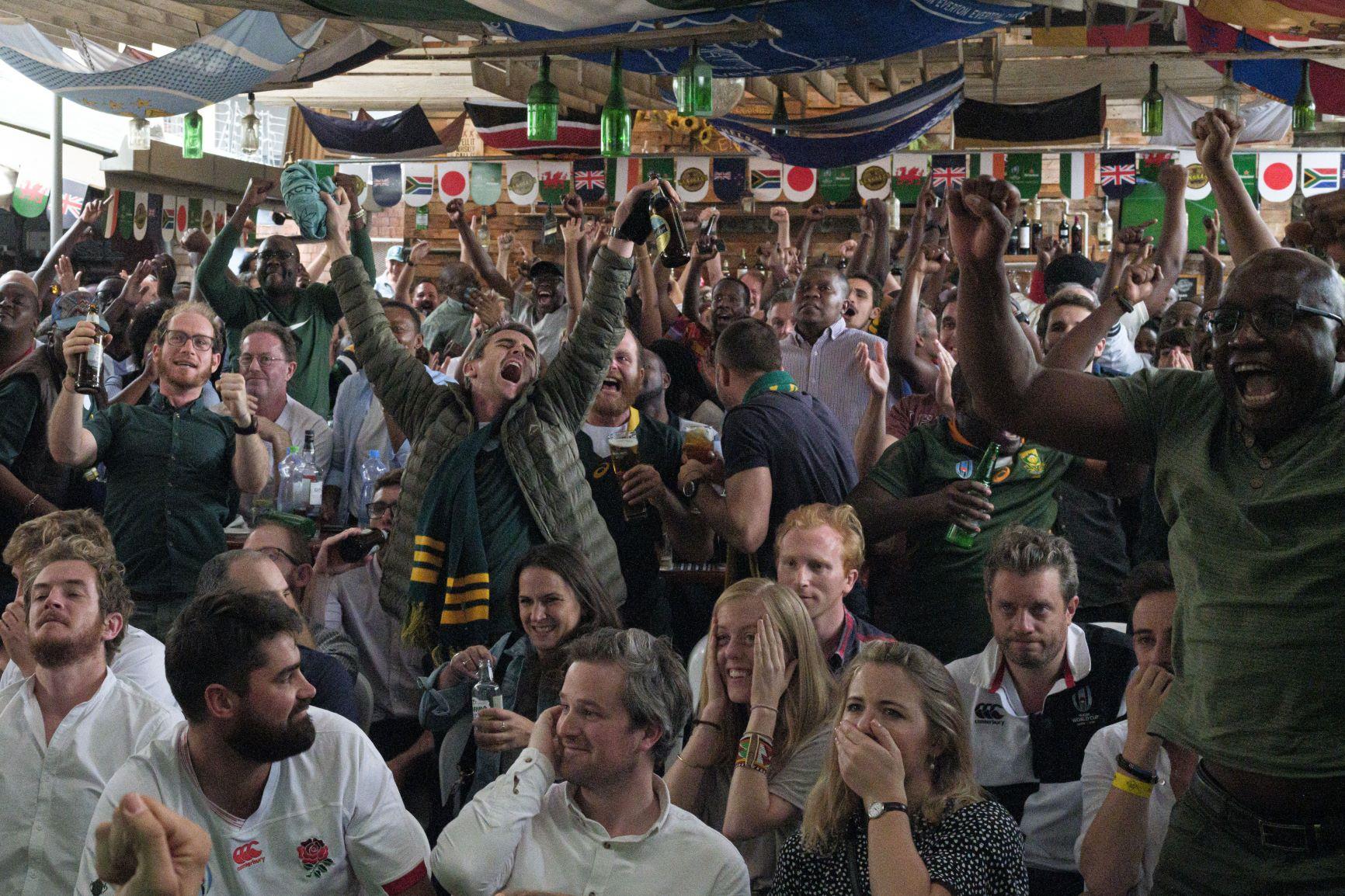
The influx of foreign tourists and the carnival vibe of the 2019 Rugby World Cup will not be repeated at the Summer Olympic Games. Photo: AFP The big non-spend
Then the coronavirus flipped the script .
In mid-2020 – when then-Prime Minister Shinzo Abe had confidently expected tens of millions of gaijin to be filling major Japanese cities – one routinely had an entire car to themselves on Tokyo-Kyoto bullet train runs.
Streets and temple sites normally chock block with selfie-stick carrying travelers were desolate. From Kyoto's fabled Gion geisha district to Shibuya in Tokyo, you could be excused for wondering if you'd wandered onto the set of Danny Boyle's latest zombie apocalypse film.
Whatever happens in July with the Olympics,“consumer spending is the biggest missing piece for the economy and it's hard to predict because it's very much dependent on the virus situation,” notes Yoshiki Shinke at Dai-Ichi Life Research Institute.
The on-again, off-again states of emergency the national government has announced over the last year, Shinke says, raise the odds of contraction.
Make that a“double-dip” recession – a risk that economists like Hiroshi Shiraishi at BNP Paribas Securities have been highlighting. As China zooms along, South Korea gains momentum and the US recovers, Japan is walking in place, at best.
In May, the unemployment rate rose to 3.0% from 2.8% in April. The near-term outlook, says economist Megumi Wada at Daiwa Institute of Research,“largely depends on how the virus spread develops” and the pace of Covid-19 vaccinations.
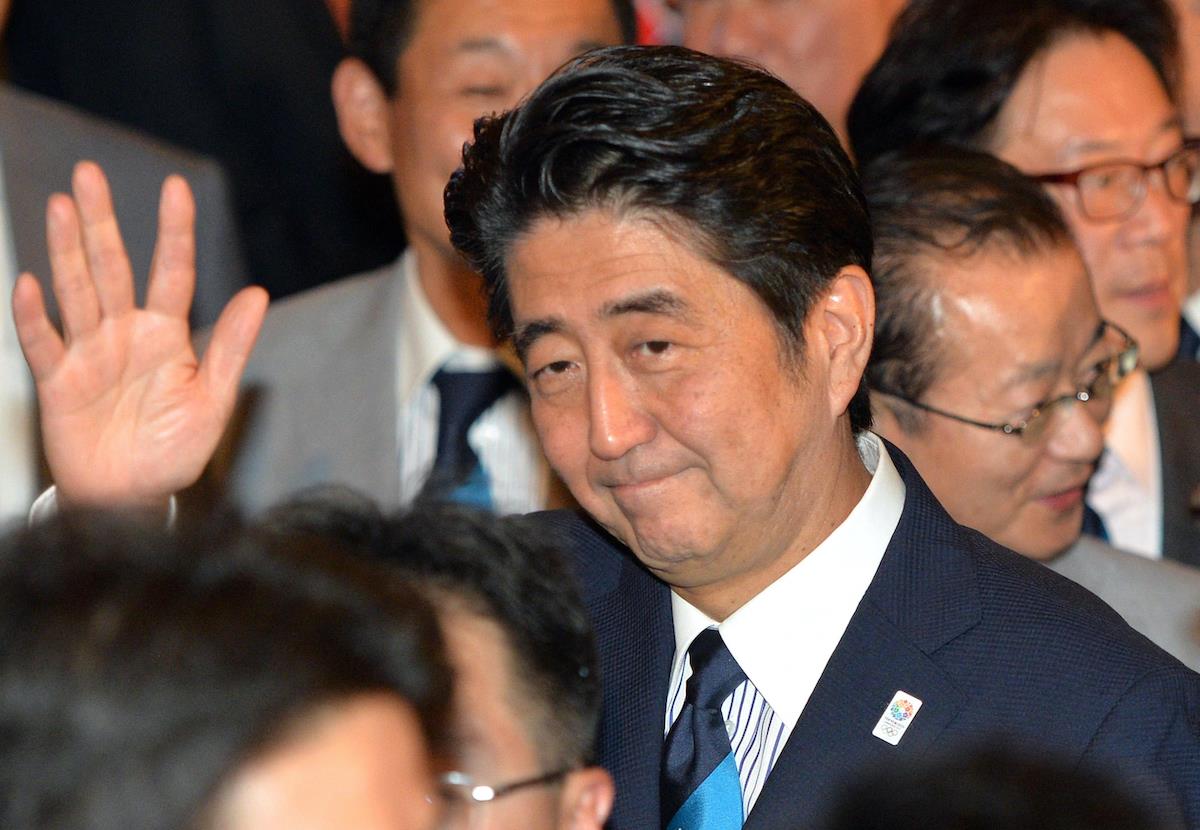
Japan's then Prime Minister Shinzo Abe celebrates winning the host city for the 2020 Olympics Games in Buenos Aires on September 7, 2013. Photo: AFP / Kunihiko Miura / The Yomiuri Shimbun What's Plan B?
The drastic disconnect between expectations and reality is putting Japan's 2021 GDP at greater risk than in 2020.
Of course, in 2013, when Abe's party won the bid for the 2020 Olympics, it had no way of knowing a pandemic would upend the game plan. But Japan is now faced with its key strategy to reflate the economy stumbling at a moment when there's no Plan B.
In mid-2020, Abe's government went on a fiscal stimulus tear. It threw at least $2.2 trillion of spending, about 40% of GDP, at an economy plunging the most on record. The Bank of Japan expanded its balance sheet further, pushing deeper in the government bond market and stocks via exchange-traded funds.
Unfortunately, the government did little else since 2013 to put the economy on a more productive path. It figured that a massive, in-person Olympics beginning in July 2021 was jolt enough – a jolt that won't happen with foreign tourists banned from entry.
Abe took office in December 2012 with bold talk of restoring Japan's innovative mojo. He pledged to loosen labor markets, cut bureaucracy, alter the tax code to incentivize startups , empower women, devise a more creative energy policy and boost productivity.
Mostly, though, Abe pursued a two-pronged strategy: aggressive BOJ easing and using Tokyo 2020 to announce that“Japan is back” – the phrase he used on the floor of the New York Stock Exchange in 2013.
The first prong saw him hiring Haruhiko Kuroda to run the BOJ in March 2013. Governor Kuroda shifted the BOJ's already ultra-loose policies into an even higher gear. But the monetary policy was meant to set the stage for the Big Bank reforms to come.
Trouble is, that reform boom was folded into Tokyo 2020. Initially, the hope was that Abe would use his soaring popularity following Tokyo securing the Olympics to bulldoze change through the parliament.
Even young Japanese who weren't around in 1964, had learned about the nation's Olympics triumph that year, and how it set the stage for the economic surge to come.
Abe's own attachment to 1964 was intensely personal. His grandfather, former Prime Minister Nobusuke Kishi, secured Japan's post-World War II coming out party. That event, coming 19 years after the nation's surrender, was Japan's chance to showcase the futuristic Tokyo skyline, avant-garde stadiums and Shinkansen networks built from the ashes of defeat.
For Abe's LDP, staging the Olympics 56 years later was cloaked in similarly magical thinking.
By 2014 and 2015, neither Abe's Ministry of Finance nor the powerful Ministry of Economy, Trade and Industry nor elected officials in parliament were advancing detailed plans to raise the nation's competitive game. Putting on a blockbuster 2020 became an all-hands-on-deck obsession.
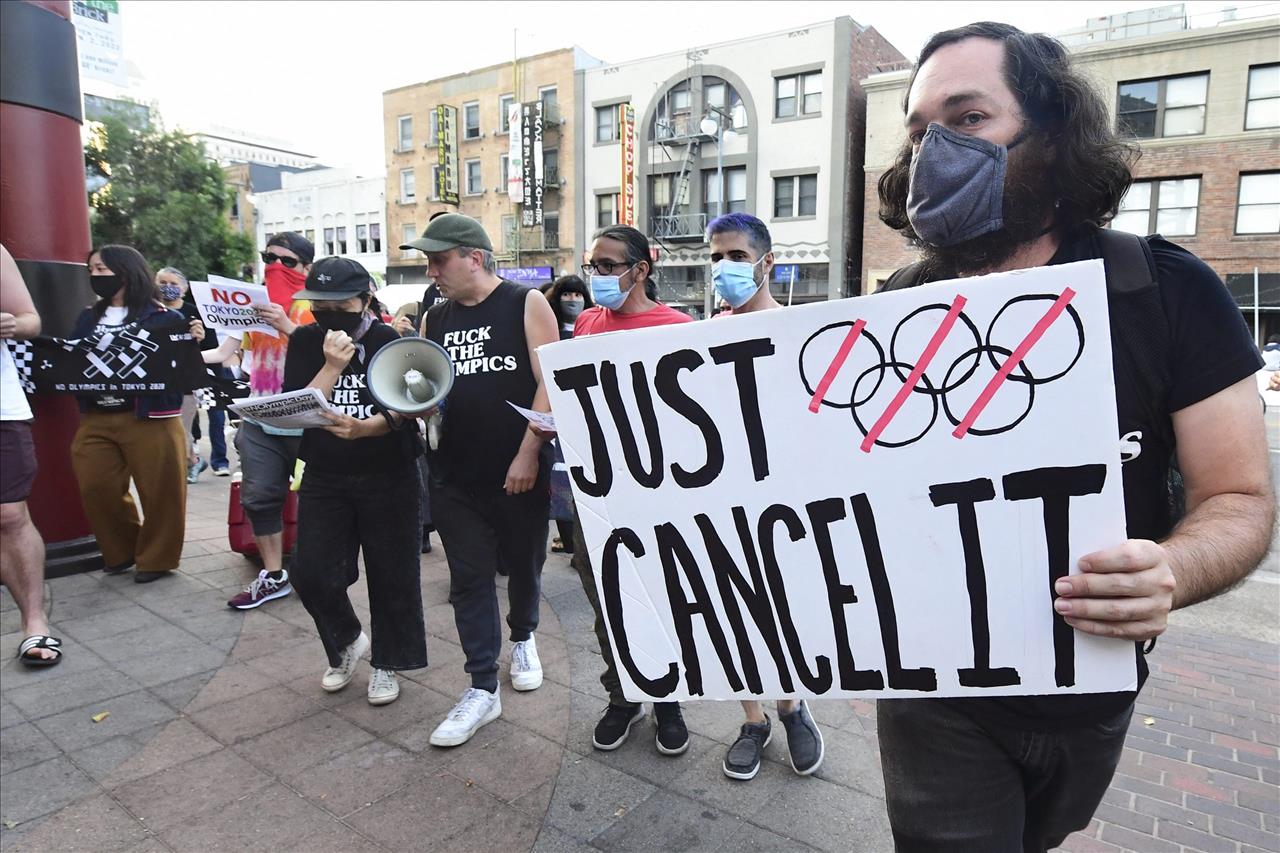
The Games are not getting a lot of love: Protesters gather in Little Tokyo in Los Angeles, California, on June 22, 2021, calling for the cancellation of the Tokyo 2020 Olympics. Photo: AFP / Frederic J Brown Betting it all on one hand
As the BOJ propped up asset prices, fiscal and industrial policymakers bet the future on a few weeks of festivities to remake an aging and rigid economy.
The hope from on on-high was that as Japan planned for 2020, those preparations would, magically, increase the nation's productivity, narrow a still-widening gender-equality gap, restore Japan Inc's innovative spirit, encourage bureaucrats to lighten up, prod corporate executives to boost wages and turn away from seniority-based promotions and improve English proficiency.
Any of these shifts require clear, bold and steady policy moves. They require intense determination on the part of ministries and elected officials alone. Instead, Team Abe spent most of the 2013 to 2020 period serving up modest tweaks when only shock therapy would do.
Tokyo officialdom bought into the collective farce that the Olympics themselves are the reform. That the preparation for a few weeks of sports – and putting“Cool Japan” into the global spotlight – was game-changer enough.
The speed with which Japan's economy veered into the red in early 2020 showed how little had actually changed during Abe's nearly eight years in power. If Abe's government had used some of these years to do the heavy lifting on economic upgrades, Japan would've displayed greater endurance.
In September 2020, Abe stepped down for“health” reasons and passed the baton to Yoshihide Suga. Nine months later, Prime Minister Suga is sticking to the same Olympics-above-all-else. Will the gamble pay off?

The baton has been passed to Yoshihide Suga, left, by Shinzo Abe. Photo: AFP / Masanori Genko / The Yomiuri Shimbun What could go wrong?
Risks abound as Tokyo tries to conduct the largest in-person international gathering of the Covid-19 era – without causing a new wave of infections.
Count Dr Naoto Ueyama, head of the Japan Doctors Union, among those fearing disaster. Dr Ueyama worried that a“Tokyo Olympic strain of the virus” would draw criticism“for 100 years.”
The Games, says economist Andrew Zimbalist, an Olympics expert at Smith College in Massachusetts, are simply too big to fail. Along with a zest for money, he says,“the IOC also feels a commitment by the momentum of history. Their whole DNA is saying: 'do it, do it, do it,'” regardless of what Japan's government prefers.
Looked at another way, though, a reasonably safe Olympics could be just what Japan – and the world – needs most in 2021, says economist Stefan Angrick at Moody's Analytics.
“The Olympics are economically relevant in that a successful event without major health incidents would signal that Japan is gradually beginning to emerge from the pandemic,” Stefan Angrick says.
“The attendant acceleration in the vaccine rollout especially is positive news for much-beleaguered leisure and hospitality industries and therefore a boost for the outlook.”
Full cancellation would be much more devastating, of course. Considering the cost of delaying Tokyo 2020 and the race to upgrade health-safety protocols, cancelation, reckons Takahide Kiuchi at Nomura Research Institute, would be a $16 billion hit.
Odd as it sounds now, Abe's LDP seemed to believe that planning for Tokyo 2020 would work its magic to internationalize business practices, increase innovation and have multinational chieftains moving headquarters from Hong Kong and Singapore to Tokyo.
It worked in 1964. Japan figured it could happen again.
The real problem is what economists call“opportunity cost.” In this case, the cost of blowing the opportunity to raise Japan's economic game these last eight-plus years.
Certainly, Japan couldn't have seen the pandemic coming – or a one-year delay for Tokyo 2020. But betting it all on a single event as some omnibus economic cure-all leaves Japan with precious little to show for the effort.

Legal Disclaimer:
MENAFN provides the
information “as is” without warranty of any kind. We do not accept
any responsibility or liability for the accuracy, content, images,
videos, licenses, completeness, legality, or reliability of the information
contained in this article. If you have any complaints or copyright
issues related to this article, kindly contact the provider above.

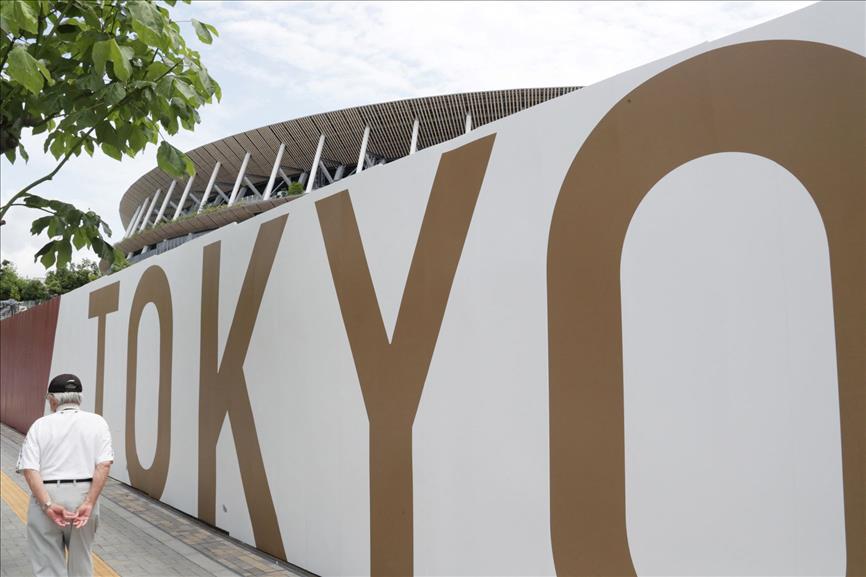















Comments
No comment